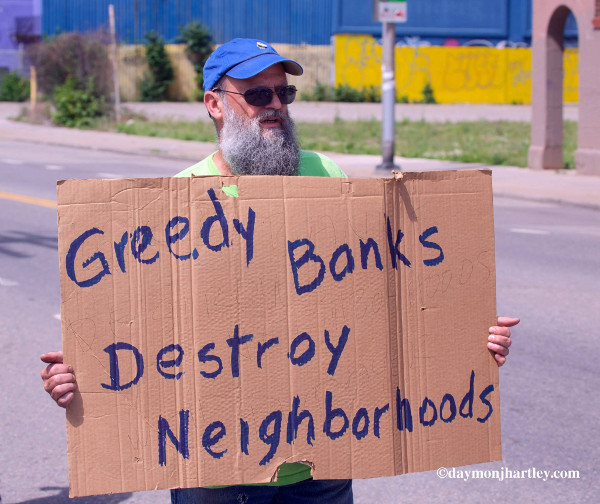
PHOTO/DAYMONJHARTLEY.COM
WASHINGTON, DC — The depth of the family homelessness crisis in Washington, DC “hit home” for me in mid-October, 2008. At a special meeting, DC City Council members were in a rush to make immediate cuts to the Dept. of Human Services, to avoid even more hurtful “double cuts” later on. There is something fundamentally wrong when the White House and Congress could find $1.3 trillion to pump into corporations that gambled away billions, but the DC City Council right between them could not even maintain the social safety net.
By March 2009, family homelessness in the DC Metro area had increased 25% in one year. Advocates for the homeless completed a video campaign to convince the DC Council that we needed more shelter. Yet a year later, when they were grilled for overcrowding homeless families, the DC Council claimed that they hadn’t seen the increase coming.
They added 18 rooms to the existing family shelter, and in the fall of 2011 another 118 rooms to the dilapidated and defunct DC General Hospital shelter. Now, less than three years later, the building is falling apart.
The government is presenting itself as a hero for rushing to remove families from the deteriorating shelter when, in fact, it allowed the building to fall into disrepair in the first place. This is strikingly similar to how they remove poor families from public housing: they promise to rebuild and allow people to return at the same rent levels – a promise that is often broken.
For three and a half years, homeless advocates asked DC Mayor Vincent Gray to do more for the homeless in general and families in particular. He responded with reluctance, refusal, and minimal accommodation, blaming homeless families for being “lazy and shiftless” and “gaming the system”.
In the winter of 2013-14 the number of homeless families exceeded 700, and were put in DC hotels, recreation centers, and Maryland hotels. Maryland County governments said they didn’t want the District’s homeless. DC had to be court-ordered to stop placing families in the rec centers, where they had to go days without showers, sleep with the lights on, and endure a lack of privacy.
Now DC has a budget surplus of $300 million from fiscal year 2013, and the Mayor wants to put the surplus into a rainy-day fund to maintain the District’s AAA credit rating. When the economy goes south, lack of funds is the excuse for denying services to the poor. When times are good, maintaining healthy finances is the excuse for denying services to the poor.
After six years of economic downturn and the spike in the number of homeless families, the administration still conveniently claims to be unaware of the increased need. They get away with this because we the leaders have failed to teach and rally the people to assert their right to remain in the city and to challenge the government’s lies. This must change. Let’s invest in housing our homeless families. Human life is worth more than a credit rating. Let’s stop gentrification, and make it possible for low-income families and individuals to remain in DC.
